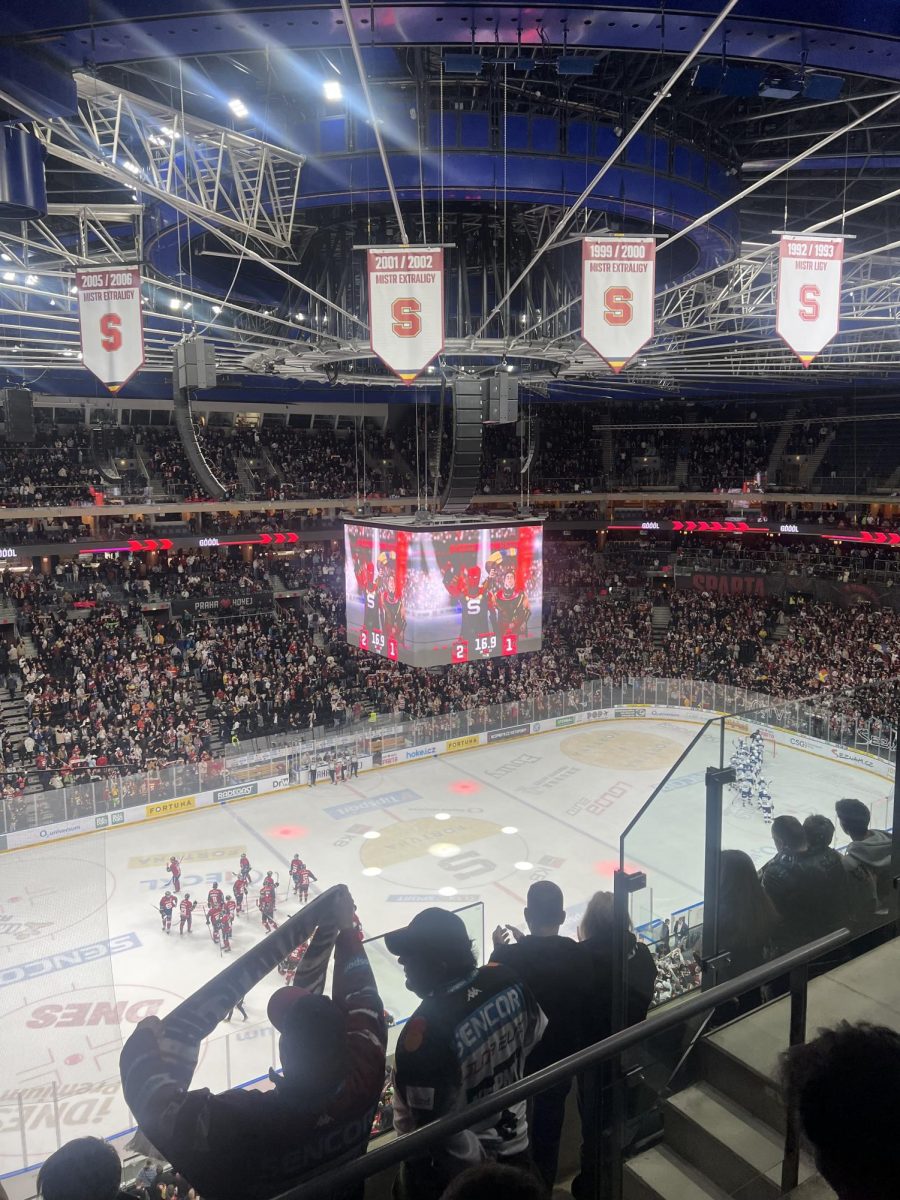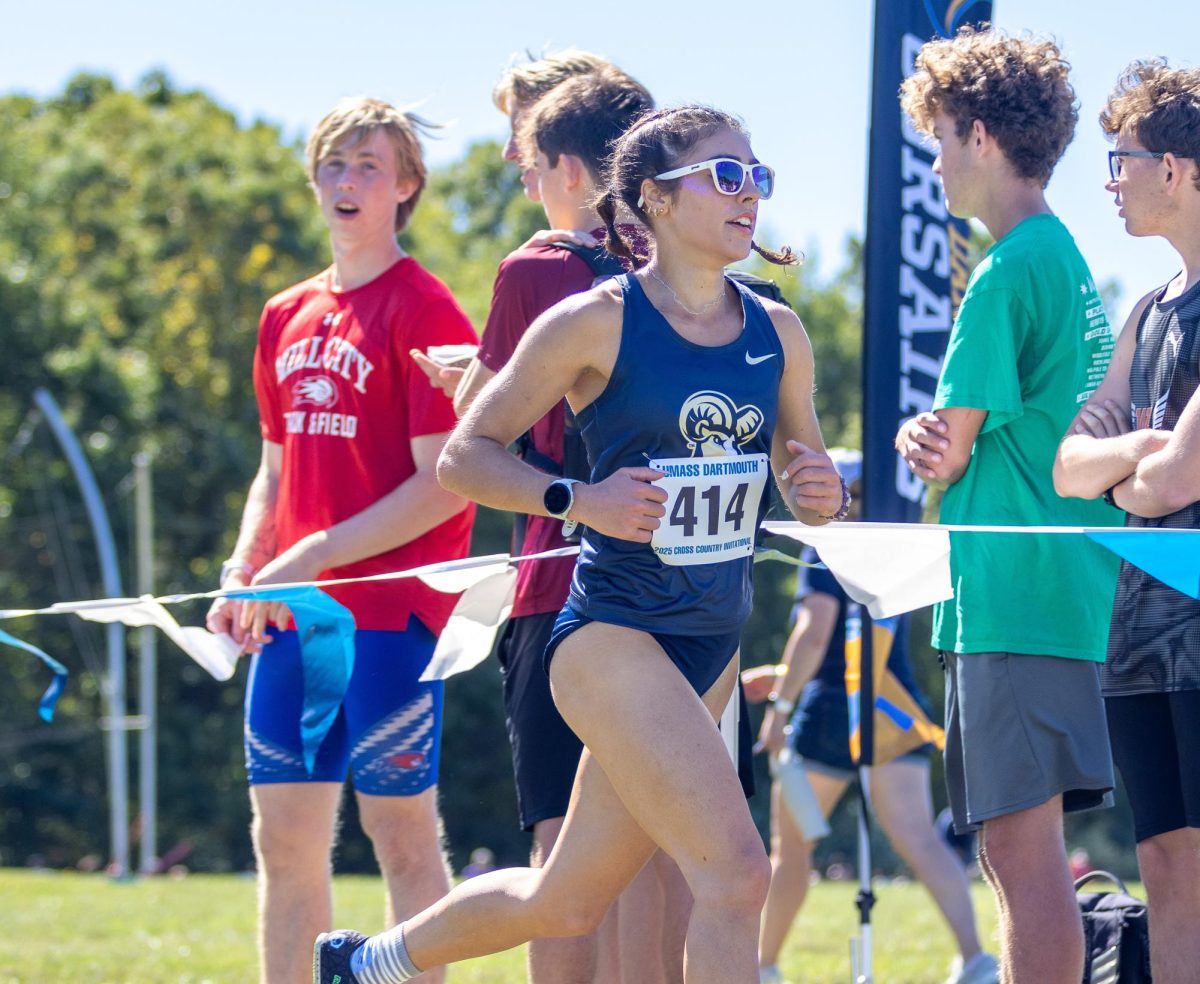The NHL can thank the Czech Republic for a number of its best hockey players in the past and the present.
Big names like Jakub Voráček, Martin Nečas and Patrik Eliáš all came out of the small central European country, but Boston and the Czechia Ice Hockey League have a particularly strong relationship.
Three players on the 2024-2025 Bruins roster call the Czech Republic home, including star forward David Pastrnak, with fellow centers Pavel Zacha and Jakub Lauko. But history is further intertwined with former alternate captain and Stanley Cup Champion David Krejčí, who even briefly left the NHL to play in the Czech League before returning for a final season to retire as a Bruin.
Arguably the most famous Czech player of all time, right wing Jaromír Jágr, spent time as a Bruin while also taking his offensive skills to other franchises in the 2000-2010s.
As a Boston sports fan, it was obvious that I’d find myself at an HC Sparta Prague game, Prague’s official hockey team, during my time abroad in the Czech Republic’s capital.
Though the league may seem small in comparison to the NHL, the talent is more than present and the fans will make it known how much they love their teams.
Made up of fourteen franchises, the Extraliga League’s playoffs start a bit earlier than the NHL, kicking off the first round of their bracket in mid-March compared to the NHL’s mid to late April start.
The game of ice hockey is played in different styles all across the world, but the rules stay relatively the same. Czech players are known to get creative with their offensive precision compared to North Americans’ style where a fast-paced and physical game would be found in the United States and Canada.
As a born and raised Bruins fan, it’s no surprise one of my biggest draws to hockey over other sports is the aggressiveness. A great fight breaking out is a highlight of a game, and the cheers as the opposing team’s player enters the penalty box are louder than any other.
So you can imagine my disappointment when walking into a Sparta Prague versus Kometa Brno regular season game March 3 when I was told that the teams usually do not drop their gloves until the playoffs.
I did not believe it at first even though I was talking to a staff member at my university abroad who had watched hockey of all kinds his whole life but was also a seasoned regular of the O2 Arena where Sparta called home.
Despite my denial, I was proven wrong as all three periods and overtime only had three penalties, one for tripping and two for high-sticking. This resulted in three power plays throughout the whole game, which felt unnatural considering my home NHL team currently sits second in the league for penalty time, having 757 minutes in the box as of March 30.
Besides the play of the game, the function of the fans was also something I had never seen.
The entire arena seemed to be separated by red Sparta, and blue Kometa sections, as if there were designated home and away team seats. It is usual to see a mass of home team fans behind the end of the ice where the opposing team only shoots once, in hopes of seeing their own team score as many goals as possible on their end, but this was an entire separation of a 20,000-capacity arena.
Though there was action behind each team’s net.
Either end had a crowd for each team, completely decked out in fan merchandise, standing and yelling synchronized chants for all 60 minutes of play. Drums were played in the first few rows of the stands to go along with the chants, and a fan with a megaphone orchestrated the voices and hand gestures of the sections.
At TD Garden you may hear some music in between calls, or foul language yelled at referee decisions and the opposing team, but never had I ever heard an entire marching band worth of fans banging snares and yelling words of encouragement to their team during a professional hockey game. The closest thing I could compare it to was a college football student section, but upon talking to locals, that was just how they handled sports in the Czech Republic and most of Europe.
Similar rituals take place in other sports like football, including the end-of-game traditions which are unique for each team as well.
Sparta won in overtime after being down 1-0 until the last minute of regulation, and upon winning with two minutes left in three-on-three overtime, gathered up in a line to shake hands with the other team.
As they finished shaking hands, they wiped their palms on the ice, to which I was told to “get the sweat off and gain good luck for the next game.”
Each team then lined up at either blue line, facing their crowd of fans on each end, where final chants were given and sticks waved goodbye. Because Sparta won, the two mascots banged a gong in honor of the victory.
The entire end-of-game ritual took around five to eight minutes, and a majority of fans did not leave the arena until the production was finished.
Both teams went on to win a majority of their games for the remainder of the season, Sparta finishing first in points and Kometa in fourth overall.
Currently, Sparta Prague is set to take on Kometa Brno in the semi-finals, after both teams had bye weeks in the first round and defeated their second-round opponents.
They’ll start the series in the Czech Republic’s second biggest city, Brno, giving Kometa the home advantage as they work towards a championship slot.
The Czech Extraliga League continues to go hand-in-hand with the NHL as the Red Wings bring on forward Eduards Tralmaks for the 2025-2026 season, having signed a one-year, two-way contract with Detroit March 21. Tralmaks spent three years on the Providence Bruins from 2020-2023 but will make his debut jump from the AHL to NHL in the fall of 2025.
Prior to his professional career, Tralmaks had spent four seasons at the University of Maine. The black bears, the same night as Tralmarks signing, had just won the Hockey East Championship Tournament for the sixth time in program history.
Though they lost in the first round to Penn State in the 2025 NCAA DI Men’s Hockey Ice Hockey Championship, Boston University still holds a spot in the Frozen Four representing New England.
Ice hockey is an international sport with national traditions in each country, but the difference in technique is what keeps the sport competitive and brings players from all around the world to the same ice.









Eddie Shore • Apr 2, 2025 at 7:09 am
There difference between Orth American hockey and European, at least Czech hockey, is fascinating. The crowd rituals an and behavior was great to read. I bet the food and what they do betwee period was unusal too. Great job with the flavor and NHL/Hockey East connections. Very clean writing